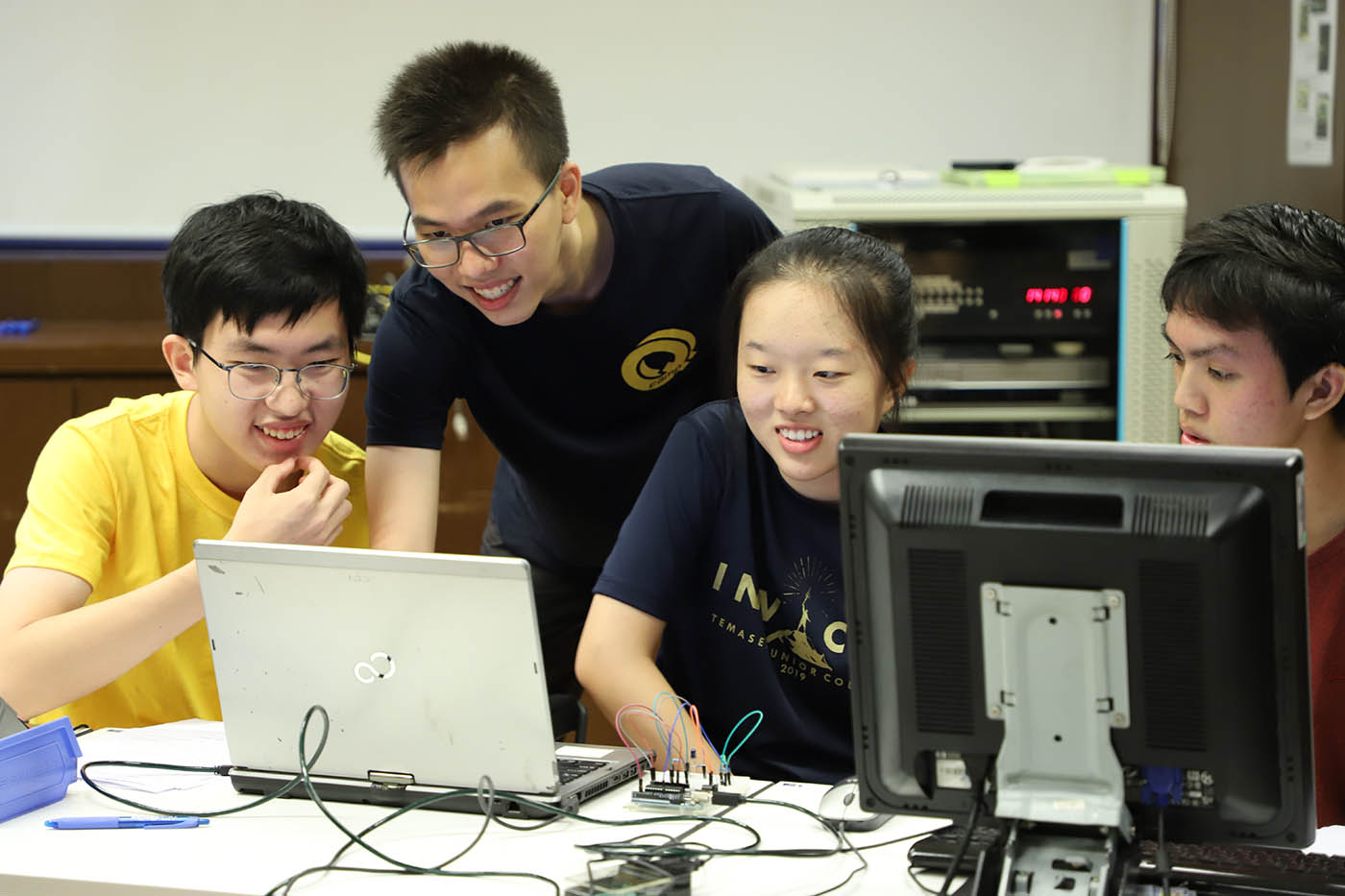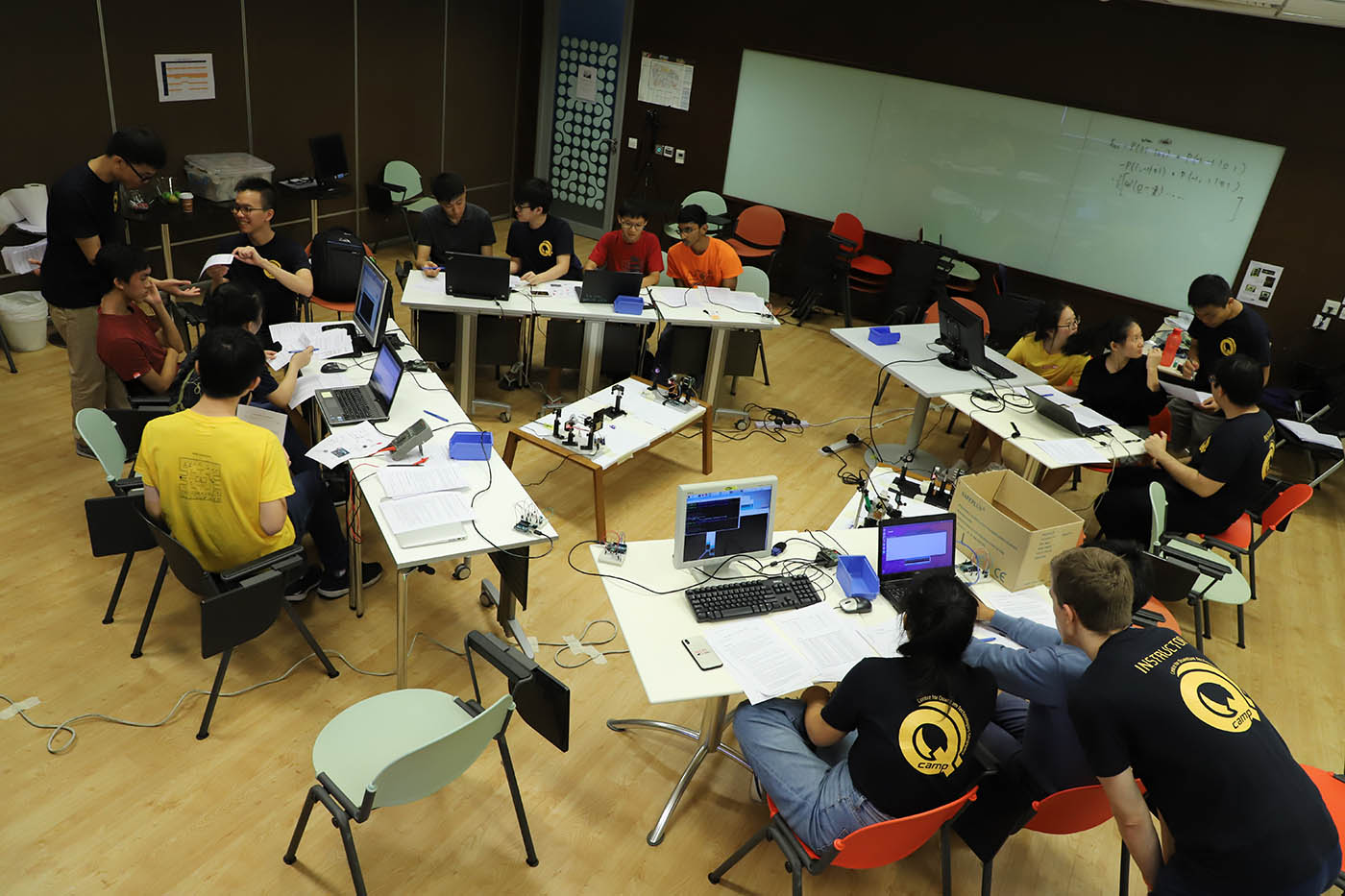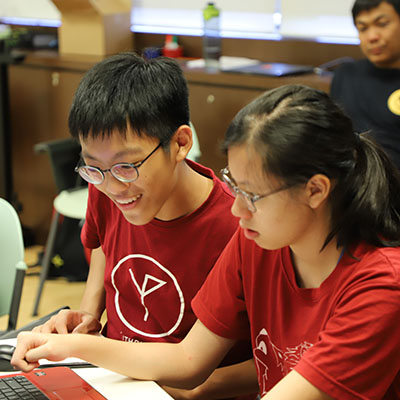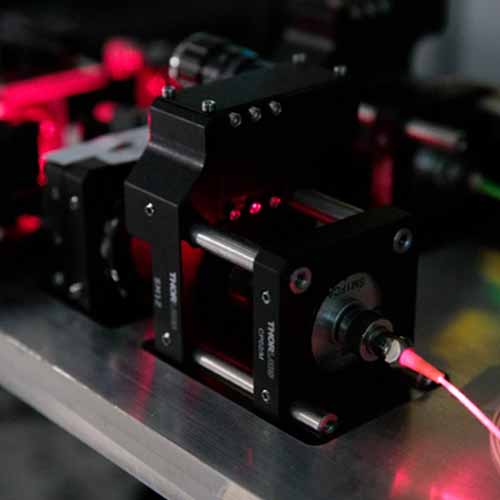Highlights
School students learn from surprise twist in hands-on quantum key distribution workshop
 Having seen how engaged school students were in experimenting with quantum key distribution, CQT researchers have published a blueprint for the hands-on workshop they designed. This picture was taken at a summer camp held in 2019.
Having seen how engaged school students were in experimenting with quantum key distribution, CQT researchers have published a blueprint for the hands-on workshop they designed. This picture was taken at a summer camp held in 2019.
CQT PhD students who developed a hands-on quantum key distribution (QKD) workshop for pre-university students have published a paper about their approach in American Journal of Physics. They hope educators will be inspired to adopt the workshop for wider use.
QKD is a technique for secure communication that is being developed in research labs and as a commercial product. The student workshop introduces the principles of using photons to share an encryption key and offers a surprise learning moment.
Lab mates Adrian Utama, Jianwei Lee and Mathias Seidler, who were all then PhD students in experimental quantum optics, designed the QKD activity for school students participating in the Centre’s Q Camp. The three co-authored the paper because “We wanted to share the blueprint of this system and students' responses to this form of hands-on-learning because we saw how engaged the participants were,” says Jianwei.
Held annually, Q camp is offered to local students aged between 15 and 19 from Singapore Junior Colleges, polytechnics and other educational backgrounds. The QKD workshop was a three-hour activity that built on about three hours of introductory lectures. Q Camp was not held in 2020 because of Covid-19 but will return in 2021 if circumstances allow – with the QKD activity included.
Open-source elements
The team developed both hardware and software modules to implement a simplified version of the BB84 quantum key distribution protocol. Schematics of the equipment are included in the paper. The team has made further documentation and the control programs available to download on Github.
“Our work allows educators to empower their students to build their very own QKD system, albeit with slight modifications that allow the system to be assembled with off-the-shelf components,” says Jianwei.
 In the QKD workshop, students are divided into four teams that play different roles in sending, receiving and trying to intercept a secret message. This picture was taken at Q Camp in 2019.
In the QKD workshop, students are divided into four teams that play different roles in sending, receiving and trying to intercept a secret message. This picture was taken at Q Camp in 2019.
QKD with BB84 involves one party, typically known as Alice, sending photons to a second party, Bob. The key is encoded in the polarisation of the photons. For the activity, students were grouped into four teams to send an encrypted message – and attempt to hack it. Each team comprised up to five students and was assisted by a facilitator.
The Alice and Bob teams built and operated the sender and receiver for the quantum key. Meanwhile, two Eve teams played the role of eavesdroppers. One team tried to intercept the transmission of the quantum key, the other the classical communication Alice and Bob do afterwards to ‘sift’ their key and then send their message. The students assembled the optical components themselves on small, solder-less breadboards, controlling the setups from laptops.
In principle, the security of QKD is guaranteed by physics. In practice, security can depend on details of the implementation. To make their kit simple and cheap, Adrian, Jianwei and Mathias made one major modification: instead of having Alice and Bob make and measure single photons, they used pulses of light. That gave Eve an opening.
QKD using single photons is secure because the quantum state of a single photon cannot be copied, thanks to the no-cloning theorem in quantum physics. In this case, Eve leaves traces if she intercepts any parts of the key. When pulses of light are used instead, Eve can just siphon off some of the photons and go undetected.
A suprise twist
At Q Camp, the student workshop ends when Eve decodes the secret message. “The debriefing session usually starts with Eve reading out loud the secret message that Alice sends to Bob. This unexpected revelation sparks the discussion of how the setup differs from an ideal BB84 setup,” note the CQTians in their paper. They note the apparent failure of the QKD system creates a cognitive conflict which has been shown to result in greater learning gains.
The successful eavesdropping was the favourite aspect of the demo for almost a third of students who provided feedback, closely followed by the hands-on experience to assemble and operate a functioning QKD system.
Adrian, Jianwei and Mathias are open to feedback from educators who pick up their plans. Mathias and Jianwei have both now completed their PhDs and have jobs with a quantum startup in Singapore. Jianwei, who taught physics in schools for a few years before he entered academia, explains “We would also like to engage educators to figure out what the potential implementation challenges are.”








